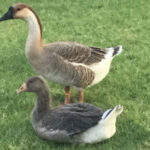
Backyard geese are nearly as majestic as swans, but are a whole lot less expensive to buy and to raise. Not only are they aesthetically pleasing, but they also serve many useful purposes. Here are 12 wonderful reasons to keep geese in your backyard. 1. Goose meat is delectable Most breeds of domestic geese originally […]
Continue Reading
Enjoy your free downloadable gift for updating your dealer listing with us here at Cackle Hatchery! Click Here to Download As an added bonus after downloading feel free to print any Cackle Hatchery sales sheets for poultry you may need instore: PRINTABLE CHICK SALES SHEETS Tips for printing: Make sure your printer settings are set […]
Continue Reading

Chicken keepers in the United States are a diverse bunch in such things as where they live, how many chickens they keep, and what they feed their flock. A paper published in Poultry Science offers some interesting insights about who, exactly, chicken keepers are. Urban or Rural Backyard chicken keepers in the United States are […]
Continue Reading
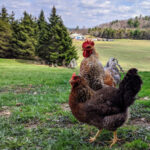
What, exactly, are free-range chickens? According to USDA, free-range chickens must be “allowed access to the outside.” That doesn’t mean they actually have to go outside. They just have to have outdoor access. On the other hand, to many rural chicken keepers, free range means letting the chickens go wherever they wish. That’s a non-starter […]
Continue Reading
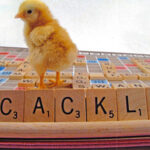
by Cackle Hatchery What is the best place to buy baby chicks? Without a doubt, Cackle Hatchery® is by far the best place to buy baby chicks, along with everything you might need to raise them to be happy, healthy chickens. Here’s why: Largest Selection Cackle Hatchery offers 230 varieties of poultry. That’s more varieties […]
Continue Reading
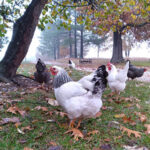
What exactly are heritage chickens? For that matter, what is a heritage turkey, duck, or goose? By definition, heritage poultry breeds share these important characteristics: They are standard breeds They mate naturally They can live a long time They are slow growing Standard Breeds Heritage breeds must have been accepted into the American Standard of […]
Continue Reading
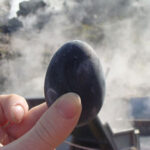
The internet is rife with photographs of eggs from chickens and other poultry that have black shells. Are they a trick of the imagination? Poor photographic lighting? Or true poultry eggs with inky shells? If so, which poultry breed lays a black egg? Maybe Ducks Among ducks, the Cayuga sometimes lays eggs with black shells. […]
Continue Reading
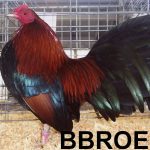
Chicken keepers often use abbreviations and assume their listeners know what they mean. Here are some of the more common chicken breed abbreviations, along with abbreviations for variety features and those used for show that may be puzzling when you see them in poultry publications, forums, and websites. Note that abbreviations may be combined to […]
Continue Reading
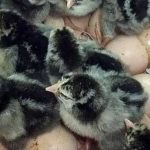
Before eggs can develop into chicks or other poultry, they must experience a specific amount of heat and humidity for a specific length of time. Most hens instinctively know what to do. Here are 6 reasons you may instead prefer to hatch poultry eggs in an incubator. Reliability Hens of your chosen breed may not […]
Continue Reading
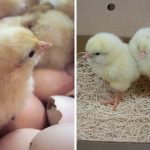
When you are ready to raise a batch of baby chicks, should you buy chicks or hatching eggs? Each option has advantages and disadvantages. So how different is it when you start with eggs versus chicks? Starting with Eggs When you start with eggs that you plan to hatch, the first thing you need is […]
Continue Reading









